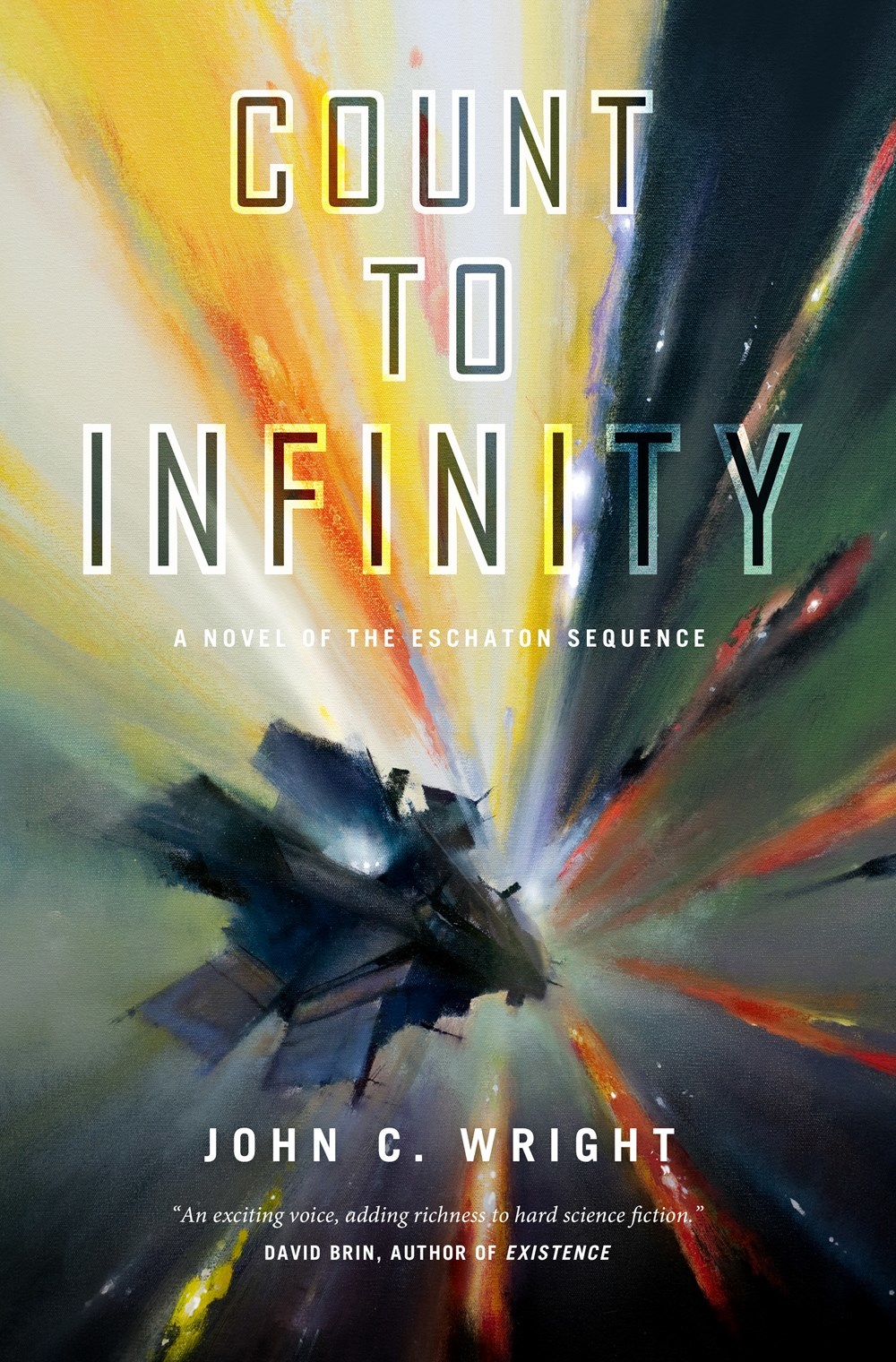What do you think?
Rate this book


352 pages, Hardcover
First published December 26, 2017
“(...) What about my damn question, damn you?”
“You want the damn full answer to your damn question or just the damn short answer?”
“Short.”
“You are a screwup. That was why we had the right to keep you on ice and out of our hair.”
Montrose growled, but no articulate words formed.
Palamedes shifted his cigar from one corner of his mouth to the other. “If you had been awake, you’d’ve balled everything up. We got to wake you up now that the ship is prepped and ready, and we want you gone. Also, you are a screwup. Did I mention that?”
“You are surely aware that some information can propagate faster than the speed of light in a vacuum?”
“Sure. There are certain tricks you can do with a superdense substance and get light to propagate at higher speeds.”
“That is not what I meant. To an observer standing outside a singularity, a black hole, what is known of the interior conditions?”
“Nothing.”
“Untrue. The mass is known, because otherwise outside objects could not be attracted toward the event horizon. Second, if the black hole is rotating, the frame-dragging effect is detectable to outside observers, who can calculate spin rate and orientation. Third, the electrical charge is known, as the greater charge shrinks the radius of the horizon. Any intelligence within the event horizon but outside the internal Cauchy horizon could manipulate these three variables to send a coherent signal out of the event horizon, apparently violating the local conservation of information. However, a simple tensor equation suffices to show that if the closed spacelike geodesic is converted to a closed timelike geodesic, then the conservation is maintained for all observers—but this would be information not propagated through spacetime. It would seem simultaneous to all observers, unlocalized to any point in time: a background radiation.”
Montrose said, “Blackie thought the mystic energy link binding me to Rania was that?”
“Not mystic, but yes. Imagine the lightcone of the universe shaped like a bell. No information can pass out. But any information affecting the mass, spin value, and charge of the universe as a whole would set the whole bell ringing. The information would be nonlocalized, apparently coming from all points in space at once, occupying no particular point in time.”
Montrose shook his head. “Nothing has that physical property.”
She said, “We are talking of something more fundamental than physics: the properties of the nonphysical matrix or context in which physical properties are allowed to exist. What establishes the curvature of spacetime? What establishes the rules of mathematics and semiotics? Our investigation of these metaphenomena show that you and Rania and perhaps Blackie have energy entanglements leading to points outside the lightcone of the universe. It is for this reason that your influence on the surrounding events within normal timespace is disproportionate. Only a First Order–magnitude being, as a selfaware galaxy acting as a whole, has the capacity to manipulate sufficiently large volumes of spacetime—our calculations suggest a volume larger than the local cluster of galaxies—to have bent your energy entanglements to ulterior points outside the universe. It was for this reason that we inscribed what we know of galactic history on your memory chains.”
A Vision of Andromeda
Montrose saw a lady made of stars, garbed in trailing tresses of a bridal gown like nebulae, her bridal veil a shower of protostars and large molecular clouds, her imperial coronet a ring of globular clusters.
The vast and unearthly countenance of this empress was beautiful beyond words, sublime but terrifying. Swarms of red giants in countless myriads painted her ruby lips, white dwarves like diamond dust adorned the curve of her cheek. Novae and white supergiants formed the whites of her half-lidded eyes, and, midmost, her blue-white irises were the accretion disks of the blackest pupils formed by two supermassive singularities, each the core of a galaxy. The x-ray jets showed the direction of her view as she bent her gaze, perfect and perfectly expressionless toward the mote of mortal life which was Montrose.
She raised her delicate, fair hands, each finger of which was a river of stars, blending and pale like the Milky Way seen in an Arizona desert midnight.
“Ximen and I got married. (...) But we never consummated the marriage … I couldn’t … I couldn’t stand the idea—”
“Because he is your father? Or because he murdered your real father?”
She said, “Neither. He was smaller than you. Stop giggling! I mean spiritually!”
“That ain’t no giggle, Woman! Texas men don’t giggle.”
“It sounded like a giggle.”
“It was a snort.”
“With your nose, Stinky? A snort would blare like a klaxon.”